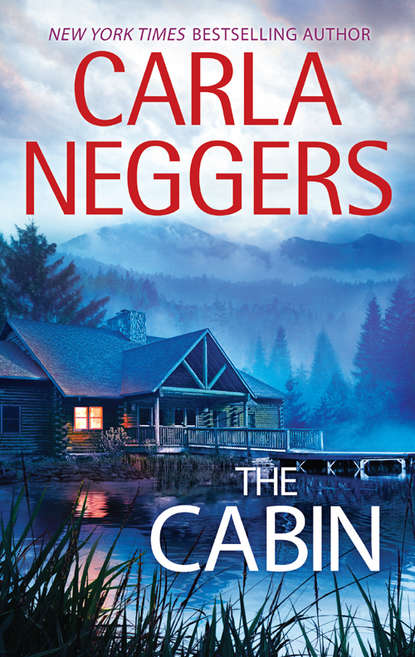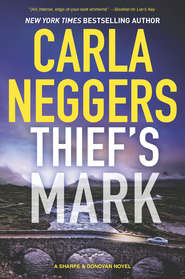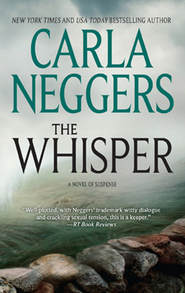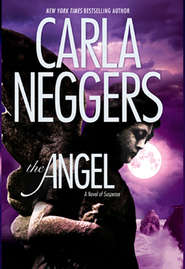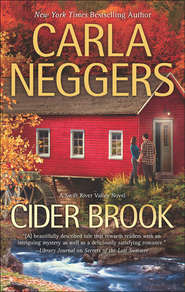По всем вопросам обращайтесь на: info@litportal.ru
(©) 2003-2024.
✖
The Cabin
Автор
Год написания книги
2018
Настройки чтения
Размер шрифта
Высота строк
Поля
Jack nodded. “Let’s hope she puts her life back together.”
“She wanted to be a Ranger. That won’t happen now.”
But they both knew it wouldn’t have happened anyway. The Texas Rangers were an elite investigative unit within the state’s Department of Public Safety. There were just over a hundred in the entire state, generally drawn from other DPS divisions, not small-town police departments.
Jack turned away from the patio doors, hearing the closing music to Sense and Sensibility coming from the family room. “Alice Parker was in over her head as a patrol officer.”
“Maybe not as much as we think. Maybe little Alice wanted us to believe she’s incompetent. Maybe she did it—maybe she killed Rachel McGarrity herself.” Sam drank more of his cold tea, obviously giving this idea serious thought. “A year in prison on a plea bargain beats the hell out of a lethal injection for premeditated murder. Admit to incompetence and produce a phony witness, draw attention away from what you really did—shoot a woman in the back in her own driveway.”
Jack shook his head. “No motive, no evidence, and I don’t think it’s what happened. Alice knew the victim. She knew the husband. That’s one of the hazards of small-town police work. She had the whole case figured out in her own head and thought she could make it all come together, put Beau McGarrity in prison and maybe get a little recognition for herself.”
“Didn’t work out that way, did it? Dreams die hard, Jack.” Sam set his tea glass in the sink. “Watch your back.”
Jack knew this was the real reason Sam had come to his house on New Year’s Day, not to rehash the Alice Parker investigation, but to communicate his misgivings about what Alice Parker might do now that she was free. Sam Temple had good instincts. He’d graduated from the University of Texas and joined the Department of Public Safety, earning his master’s degree in criminal justice on the side. He was tough-minded, decisive and naturally suspicious, but also fair. People liked Sam—they’d probably make him governor of Texas one day, if he ever decided to leave law enforcement.
He was frowning at the kitchen counter. “What the hell is that?”
Jack followed his gaze. “An espresso machine. The girls gave it to me for Christmas.”
“You’re kidding.”
“Come on, Sam, you know what an espresso machine is.”
He grinned. “You start drinking lattes, Lieutenant Galway, and they’ll throw you right out of the Rangers.” But he turned serious again, calm. “If Alice Parker tries to stick her nose back into the McGarrity case or come after you—”
“We’ll find out. She’s not stupid. She knows she has to put this behind her and move on.” Jack started back toward the family room, clapping one hand on the younger Ranger’s shoulder. “You’re just looking for things to think about so you won’t have to eat any more watercress sandwiches.”
“Not me. You’re the one who needs distracting. Susanna was down here for New Year’s last year. Bet last night was a long one for you.” Sam laughed, then said out of the blue, “It’s cold in Boston, you know. High of twenty today. Wind chill’s below zero.”
“Good.”
“If that was my wife, I’d go fetch her.” Sam’s black eyes flashed. “I’d bring my cuffs.”
“Sam—”
He held up a hand. “I know. None of my business.” He sauntered into the family room and gave the girls more grief about the guy from Die Hard.
“His name is Alan Rickman,” Maggie said coolly.
Sam shook his head. “You and Ellen have been up north too long. You’re starting to sound like Teddy Kennedy.”
Jack smiled from the doorway, listening to his daughters give as good as they got from a Texas Ranger more than fifteen years their senior. They weren’t shrinking violets. Neither was their mother, although sometimes Jack thought his life would be easier if Susanna would be a little more of a shrinking violet, at least once in a while.
Not long after Alice Parker was arrested, it became apparent that Beau McGarrity wouldn’t be charged for his wife’s murder anytime soon. People were even starting to feel sympathy for him, believing he was innocent, the victim of police corruption and a rush to judgment.
Jack felt the familiar mix of anger and frustration assault every muscle, every inch of him. His entire body stiffened. He was mad at Susanna, mad at himself—but he knew what he had to do. One of these days, he and his wife were going to have to have a talk about Beau McGarrity.
* * *
Maggie and Ellen joined him on his run the next morning. They all did five miles before Maggie pooped out, declared she was on vacation and flagged down a neighbor to drive her home. Ellen would have hung in for the full ten miles, but Jack wasn’t up to it himself and veered off on a shortcut that took them back home, settling for a solid seven-mile run.
After lunch, the girls did their laundry and started packing for their trip back to Boston in the morning. They sat folding clothes in the family room, the Weather Channel detailing the frigid temperatures still gripping the northeast.
Ellen plopped a laundry basket on the floor and sat down cross-legged, pulling out a rugby jersey to fold. “Dad,” she said, “Maggie and I have been talking, and we’ve decided—well, we haven’t said much about you and Mom...”
“We’ve tried to stay out of it,” Maggie added.
Here it comes, Jack thought. He eased onto a chair, still feeling the seven miles in his calf muscles. Thus far, his daughters had generally avoided lecturing him on his relationship with their mother. But he knew they had opinions. He could at least listen to what they had to say. “Go on,” he told them.
Ellen took a breath, as if she were about to confess to something awful or embarrassing. “We think Mom wants to be wooed.”
“Wooed?” Jack nearly choked. This was a million miles from what he’d expected. “How many Jane Austen movies did you watch yesterday?”
“We’re serious, Dad,” Ellen said.
Maggie was sorting through a stack of her vintage clothes. She and Ellen and their friends had combed through every secondhand store in San Antonio, raving over sacks of clothes they’d picked up for a few dollars. Most looked like rags to Jack. “We know Mom’s independent and supercompetent and makes tons of money and all that,” Maggie said, “and she’ll watch football with you and talk murder and stuff—”
“But she needs romance once in a while,” Ellen finished.
“Wooing,” Maggie added with a glint in her eye that said she wasn’t as intensely serious about this conclusion as her sister was.
Jack shoved a hand through his hair. It was dark, more flecked with gray than it used to be, and not, he decided, just because he was forty. Life with three females had taken its toll. When the girls headed off to college, he was getting a dog. A big, ugly, mean, male dog.
“Girls,” he said, “your mother and I have known each other since we were college students.”
Ellen pounced. “Exactly! Dad, nobody likes to be taken for granted.”
“What does that mean?”
She groaned, shaking her head as if her father was the thickest man on the planet. She was in shorts and a rugby shirt, the bruises on her legs finally faded. The San Antonio sun had brought freckles out on her nose and cheeks, lightened her chestnut hair. As far as Jack knew, neither she nor Maggie had any long-term boyfriends. Fine with him. He was in no hurry to see guys “wooing” his daughters.
Maggie folded a pair of old-man striped golf pants, circa 1975, one of her favorites. “Everyone wants to feel they’re special.”
“This isn’t about blame,” Ellen said. “It’s not about who did what wrong. It’s about how you can take the bull by the horns and...and...”
“Woo your mother back,” Jack supplied, deadpan.
Ellen frowned up at him. “Yes.”
Maggie sank back against the couch. “This isn’t a double standard. We’re not expecting you to take on the wooing because you’re a man, but because it’s so obviously what Mom wants, and it’s so—Dad, come on. It’s so simple.”
Nothing involving Susanna Dunning Galway had ever been simple. Jack shook his head. “What kind of classes have you two been taking up in Boston?”
Neither girl was backing down. Ellen said, “You were distracted in the weeks before we moved north. Remember? You had that police corruption case. You hate corruption cases, you didn’t want to talk about it, and I think it affected you more than you or Mom realized at the time.”
Jack couldn’t believe he was having a conversation with his daughters about the ramifications of his work on his relationship with his wife. “I liked you two better when I could stick you in a playpen. My work and my family life are separate. There’s a fire wall between them.”
“There! You said it!” Ellen pointed at him in victory. “You keep a part of yourself walled off from Mom. You don’t talk to her.”





